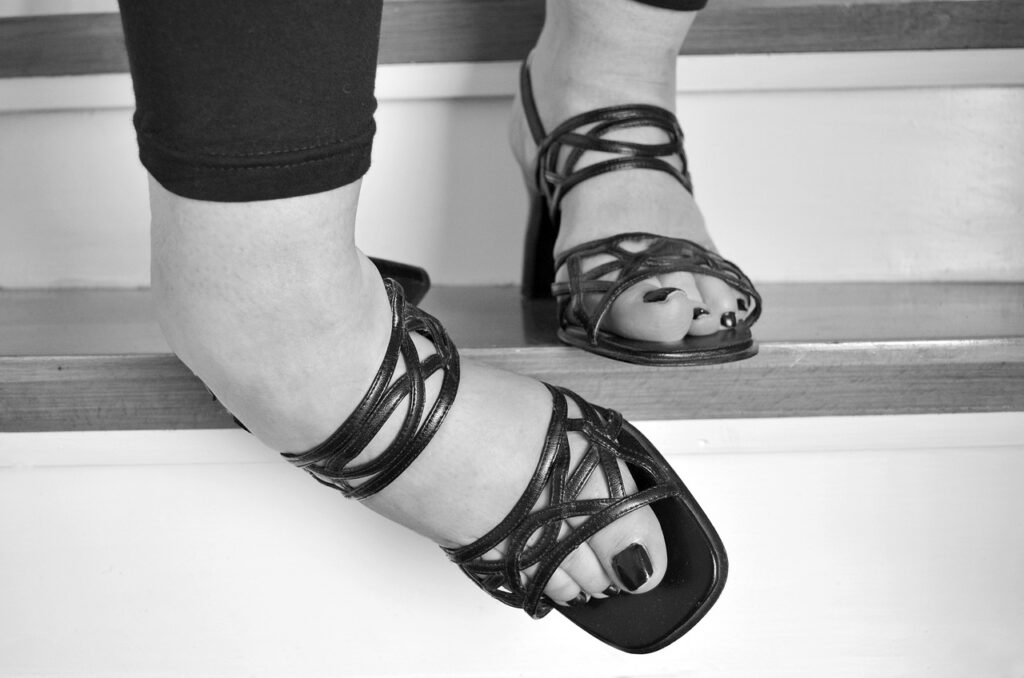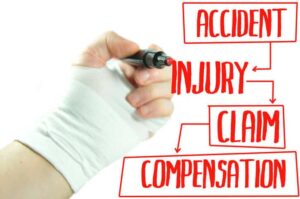 Sustaining a personal injury at a family member’s house or on his or her property is not out of the realm of possibility. In fact, according to the National Safety Council, private properties are dangerous. In 2020, approximately 156,000 avoidable injury-related deaths occurred in the private sector. These deaths accounted for 78% of all preventable injury-related deaths that occurred that year. Though the causes of private-sector injuries and deaths vary and include drowning, open flames and choking, the most common cause of injuries, aside from poisoning, is falling.
Sustaining a personal injury at a family member’s house or on his or her property is not out of the realm of possibility. In fact, according to the National Safety Council, private properties are dangerous. In 2020, approximately 156,000 avoidable injury-related deaths occurred in the private sector. These deaths accounted for 78% of all preventable injury-related deaths that occurred that year. Though the causes of private-sector injuries and deaths vary and include drowning, open flames and choking, the most common cause of injuries, aside from poisoning, is falling.
If you slipped and fell in a loved one’s home, you may wonder if you can sue him or her. The short answer is “yes.” However, the real question is, should you?
When You Might Sue a Family Member
There are several ways you may sustain an injury on a family member’s property. You may burn yourself around the campfire. You may cut yourself while helping wash the dishes. A little one may choke while eating grapes. However, to have a lawsuit, you need to be able to prove that the homeowner, or, in this case, your family member, could have prevented the injury with a little more care and attention. You must also prove that your own carelessness, lack of attention or recklessness did not play a role in your accident and that the activity in which you were engaged was not “inherently risky.” In most situations, these rules would rule out your ability to file a lawsuit for a campfire injury, an injury sustained while helping cleanup or a food-related injury.
That said, there is one type of accident over which the homeowner does have control and over which you may have little to none, and that is a slip and fall accident. Property owners owe licensees, social guests and invitees — or, persons with express or implied permission to be on a property — a duty of reasonable care to keep the property safe and free of hazards. The key term here is “reasonable care.”
Just because you injure yourself in an unsafe condition does not make the property owner automatically liable. For the law to hold a property owner accountable, the claimant must establish negligence. To establish negligence, you must demonstrate that your family member knew about the property defect that caused your accident that resulted in your injuries. Moreover, you must prove that he or she did not take reasonable steps to remedy the situation and/or to warn you about the dangerous condition so you could avoid it. A few examples of what this might look like are as follows:
- The day before a family gathering, your uncle’s dog dug a massive hole in the yard. Your uncle knew about the hole but failed to fill it, block it off or warn you and other partygoers of its presence. You tripped in the hole while chasing your son and broke your ankle.
- Your aunt invited you to a Christmas celebration at her house. It snowed the night before and rained the day of, yet she never salted her front steps. You fell backward while walking up her front steps at dusk and sustained a brain injury.
- The sidewalk around your sister’s pool is uneven, and she knows this. She never told you, though, or warned your kids about the defect. Your daughter tripped over the sidewalk and hit her head before falling into the pool.
In any of these situations, you may consider suing a family member over a Cambridge personal injury.
Why You Might Sue a Family Member
It goes without saying that suing a family member can create a serious rift in the relationship. This being said, most people do not sue family members unless a few circumstances exist:
- The relationship was already damaged
- The circumstances leading up to the accident were extremely negligent and borderline reckless
- The accident resulted in severe and life-changing injuries
- No other options for pursuing compensation exist
Many personal injuries, but especially trip and fall injuries, can be financially, physically and emotionally devastating. From broken bones to brain injuries, and from hip fractures to neck and spine injuries, slip and fall injuries are often severe and costly, and they often adversely impact victims’ lives in multiple ways. If your accident resulted in extensive and ongoing medical bills, and if it rendered you unable to work, pursuing compensation via legal action may be absolutely necessary, regardless of what it costs you to do so.
Options for Compensation
Ideally, you will not sue a family member for a personal injury unless you absolutely must. Fortunately, there are a couple of routes to compensation that do not involve legal action. In any case and regardless of who a claim involves, lawsuits should be a last resort option.
Filing an Insurance Claim
The best and least contentious route to recovery is to file an insurance claim against the homeowner’s insurance policy. If your accident occurred in or around your family member’s home, chances are that his or her homeowners’ insurance policy will cover your damages. If it does, the company will assign an adjuster to your case, whose job is to investigate your claim and determine its value.
Filing an insurance claim has distinct advantages and disadvantages. On the one hand, filing a claim is much simpler than filing a lawsuit and is unlikely to cause hurt feelings. Moreover, you receive the compensation you need without pushing your family member into debt.
On the other hand, insurance adjusters tend to approach claims with a built-in bias against the person filing the claim. If your claim is successful, the insurance company must pay you, which means it loses money. To prevent the company from losing a significant amount, the adjuster may minimize the value of your claim and make a low-ball offer. For this reason, it is crucial that you approach the claims process armed with a skilled attorney, who can negotiate on your behalf for a fair and full settlement.
Working It Out Outside of Court
Another option for recovering compensation that negates legal action is simply working out a deal with your loved one outside of court. If you and your family member are on good terms, he or she may offer to pay for your medical expenses and cover your costs of living until you recover. If you go this route, be sure that your family member will keep up his or her end of the deal for your entire recovery. You do not want to miss your window of opportunity for filing a claim only to have your family member stop supporting you halfway through the recovery process.
Filing a Lawsuit
You should only file a lawsuit if seeking recovery via an insurance claim or out-of-court deal proves unsuccessful. Though a personal injury lawsuit comes with several distinct advantages — including a fair and impartial process and the possibility to recover significantly more in damages — lawsuits can be lengthy and costly. There is also a good chance that filing a lawsuit against a family member may irreparably damage your relationship with him or her and other family members.
Explore Your Options With a Knowledgeable Attorney
While you can sue a family member over a personal injury, you should carefully consider the implications of doing so. A knowledgeable attorney can help you identify and explore all available options for recovery and take the steps to pursue the one that is best for your situation. For the guidance you need at this difficult time in your life, schedule a no-fee consultation with Jason Stone Injury Lawyers. When you meet with us, there is no obligation, just information.
Not Trusting What You’re Being Told?
Better Phone Stone
800-577-5188
 START MY NO OBLIGATION CONSULTATION
START MY NO OBLIGATION CONSULTATION











